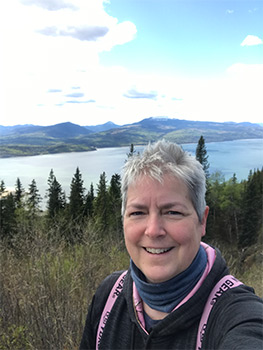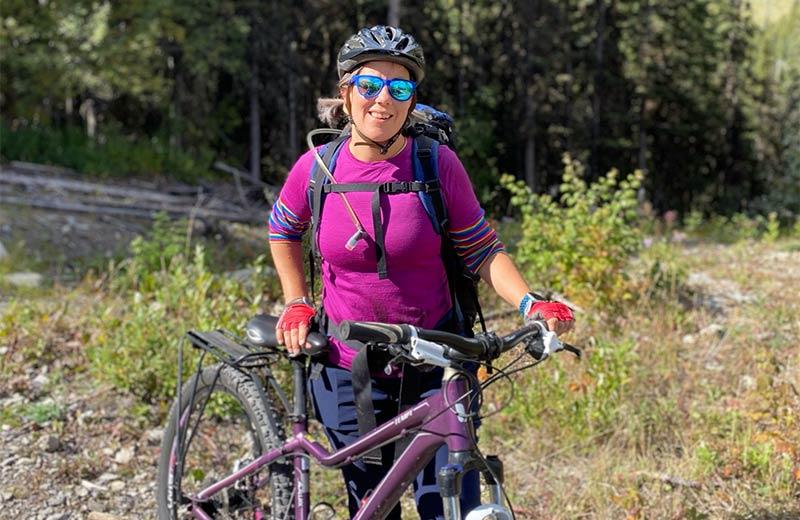Today is the first time for the Province of BC to formally recognize the broad range of professions that make up the allied health workforce and the critical role they play in our health system. It is an opportunity to recognize the contribution of allied health professions to patient care, and a chance for other professions to get to know and celebrate the range of allied health professions’ skills and achievements.
More than 70 allied health disciplines provide highly specialized health services to British Columbians. Since 2018, October 14th has been celebrated as International Allied Health Professions Day to appreciate and recognize the significant impacts and contributions of the collective allied health workforce around the world.
In BC, the allied health workforce includes approximately 58,000 individuals and represents the second largest health workforce (after nursing). They provide a range of preventive, technical, diagnostic and therapeutic health care services across the continuum of care and across the lifespan. Allied health professionals have risen to the challenges resulting from COVID-19 and we would like to acknowledge their critical role in our health care system and thank them for their tireless efforts to keep British Columbians healthy.
Recreation therapist Gloria Fox, and medical lab technologist Lisette Vienneau talk about their roles, what brought them to their professions and why they enjoy working as an allied health professional.
Gloria Fox
What is your role?
Currently, I am the Regional Lead for Physical Activity with the Population and Public Health Department. However, my background is in recreation therapy. When I was first starting my career in 2004, I did some work on recreation therapy teams before landing a therapist role. Most of my work was in long-term care settings, such as the Jubilee Lodge and Rainbow Lodge in Prince George, Stuart Nechako Manor in Vanderhoof, and Dunrovin Lodge in Quesnel. I also spent some time working in rehabilitation (UHNBC) and supportive housing (Legion Wing) settings.
In 2016 I began my current role promoting physical activity as a disease prevention and management strategy for everyone living in the North with a focus on helping people be and stay healthy.
What made you want to be a recreation therapist?
My decision to become a recreation therapist has personal roots. When I was a kid, 12 years old, my dad spent some time on the rehab unit in Prince George following surgery. I would go visit him and the recreation therapist would engage him in different activities. I thought, “How cool is this? He’s in a hospital setting but still having fun!” This experience inspired me and I completed my high school work experience with a recreation therapist working with seniors.
What do your roles involve?
As a recreation therapist, we meet with clients either one-on-one or with their family members, depending on the condition of the client, to determine what the client’s personal values are and what's important to them. We spend time getting to know them better and find out their abilities and limitations. After that assessment process, we’ll come up with a treatment plan to help them continue with activities that are meaningful and add value to their lives.
The focus of recreation therapists in rehab is about working to integrate the client back into their life and community. In long-term care, it’s more of a holistic approach to add value to the client’s life and make sure people are supported and involved.
Here are some examples of therapeutic recreation activities I’ve done, with the goal of making the activity match the level of ability:
- We’ve taken clients to a pool and work with them so they can learn how to get in and out of the pool with their new ability level and what they can do in a pool.
- We’ve offered adapted bowling in the facility to mimic going to a bowling alley and use ramps for clients to push the balls down.
- We’ve taken clients on outings to Ferguson Lake to do some fishing or have a barbeque, and to add some sort of normality to the person's life.
- We assist clients to find the joy that comes from music. We find out what music that person enjoys and finds meaningful. The impact music can have on any person at any stage is amazing.
- Lastly, we’ve created sensory stimulation with a Snoezelen Room, which is a quiet dark space often with fibre optic lights and different things to smell, touch, see, and sometimes even taste. It’s mentally and physically stimulating and calming at the same time.
In my current role as physical activity lead, I’m looking at ways to connect with not only health care providers but also community partners, local governments, etc., to find ways to make it easier for Northern British Columbians to access and engage in opportunities to be active (recognizing that it’s not as simple as “just being more active” in many cases).
Some examples of physical activity promotion work I do include:
- Connecting people and organizations with opportunities (grants, education, etc.) that aim to improve physical activity programming and equitable access.
- Partnering with and sharing information about organizations that provide physical activity services (such as the Choose to Move, School Physical Activity and Physical Literacy, and Appetite to Play programs).
- Working with students to discover available no-cost or low-cost opportunities to be active in communities.
- Finding, or creating, and sharing evidence-based information and resources to support health care providers in promoting physical activity in their practices.
I just went through the process with the NH web team of creating and launching a public-facing NH Physical Activity webpage, which I’m hoping will provide the support and information that people may benefit from while looking to increase or start being active. It’s also a resource for busy health care providers (including allied health colleagues) to point their clients toward to get more information.
What is the best thing about being an allied health professional?
In general, with being an allied health professional, you have a lot of diversity of opportunities, and every day can be different. As a recreation therapist, we get to focus more on the positive aspect of care by maintaining or enhancing people's abilities – rather than focusing on the disease or issue. The contribution that allied health professionals make to the health care system is huge and irreplaceable, and I feel fortunate and grateful to be part of that world.
Lisette Vienneau
What is your role?
I’ve been a medical lab technologist for 33 years. For the last three years, I’ve been the Regional Director for Diagnostic Services, leading the regional team for lab, medical imaging, and respiratory services.
I graduated from Cegep of Rosemont in Montreal in 1988 and then worked full-time as a medical lab technologist in New Brunswick for 18 years. In 2007, I moved to Fort St. John and started working for Northern Health as the Northeast Regional Technologist. In this role I supported the Lab Chief Technologist and oversaw lab quality, accreditation, safety, and leadership. I loved that job! It felt like I was doing volunteer services and getting paid was a bonus.

In 2019, I moved into my current role. I’ve grown a lot over my career and built my confidence up through having great leadership roles to support me.
In my spare time I love cooking for my family and friends, camping, quading, and hunting.
What made you want to be a medical lab technologist?
When I was eight years old, my mom was the hospital lab housekeeper. She brought me in with her one evening and the medical lab technologist showed me around. I fell in love with the profession right then.
What does your role involve?
Medical lab technologists perform a full range of laboratory tests – from simple prenatal blood tests and determining blood type for transfusion to more complex tests to uncover diseases such as HIV/AIDS, diabetes, and cancer. We are responsible for reporting laboratory findings to pathologists and other physicians.
We operate and maintain sophisticated instruments and equipment and actively participate in quality improvement programs that are essential to ensure laboratory testing is accurate, timely and meets customer needs.
What is the best thing about being an allied health professional?
The best part is to actually be part of the patient getting better. We’re able to support the physician and the care team in the diagnosis, treatment, and monitoring of the patient's health.
Over the years, the role of the medical lab technologist has always been a profession hidden behind closed doors and people don't know much about us. People think it's a nurse collecting the blood (instead of a medical lab assistant) and don't realize it's a medical lab technologist analyzing the blood sample.
These two stories are just a sample of the many different allied health professions that work hard every day to care for the people of the North. Take some time today to thank an allied health professional you know!














Comments